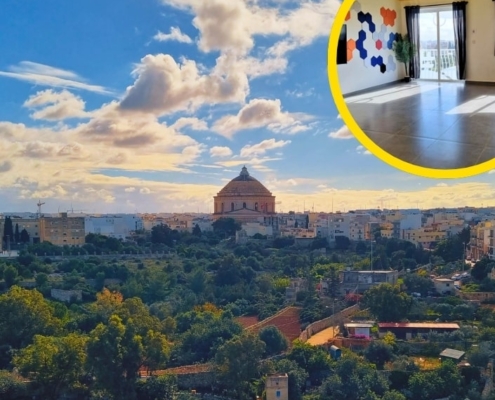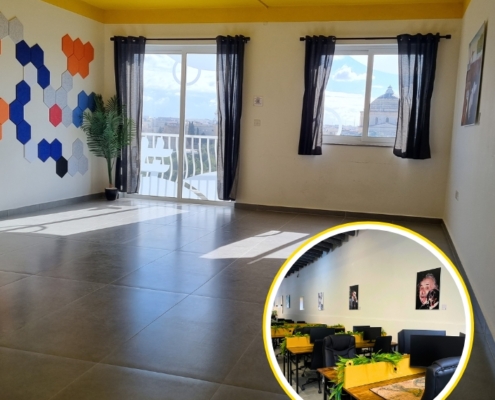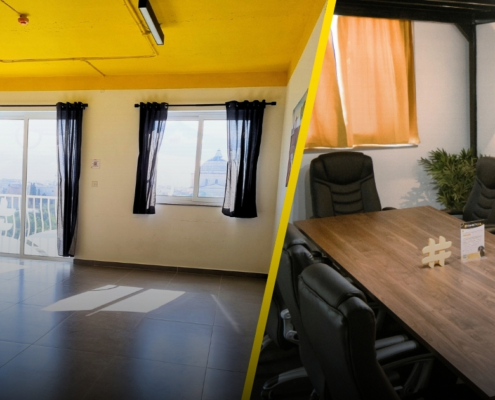The term “Homo sapiens” means “the wise man” in Latin, reflecting our desire for a better life. It’s natural for some people to seek legal ways to optimize or reduce their taxes, and Malta is often considered a favorable option in the world of tax systems. Indeed, the Maltese tax regime has undergone significant reforms in recent years, positioning the country as an attractive place for foreign investors and entrepreneurs.
What makes Malta so appealing to those looking to reduce their taxes?
Malta’s tax system offers a comfortable environment, but taking advantage of it requires effort. While most EU countries have closed their citizenship by investment programs, Malta’s tax program is still available, thanks to a rigorous due diligence process. The program benefits both investors and the country, providing investors with a coveted Maltese passport, favourable tax climate, visa-free travel, and confidence in the future, while generating significant government revenue.
Resident or non-resident? How taxes in Malta differ
Tax residency is a key aspect of Malta’s taxation system, with different tax obligations and benefits for residents and non-residents. That is to say, tax residents in Malta, whether individuals or legal entities, are required to pay taxes and can claim various deductions and benefits. Maltese tax residency is sought after by expats due to tax advantages, such as no taxes on luxury, property ownership, inheritance, gifts, and royalties.
Additionally, tax residents may be eligible for substantial tax deductions, which are rare in other countries. To become a tax resident, one must spend more than 183 days a year in Malta or earn income from business activities there. Holding a temporary or permanent residence permit, citizenship, or having an employment contract in Malta automatically grants tax residency. However, if a person with Maltese residency or citizenship conducts business and earns income in another country, they are not required to pay taxes in Malta.
How the Maltese tax system works: the tax rates
Taxes in Malta vary, and residents are subject to several of them. For instance, stamp duty is a mandatory tax imposed on real estate, company shares, and business stakes, with rates of approximately 5% for properties and 3-5% for marketable securities.
Income tax in Malta
Most importantly, personal income tax in Malta follows a progressive scale, ranging from 0% to 35% based on annual taxable income, with potential deductions based on marital and parental status. Rates and deductions for tax residents are as follows: 0% for income up to €9,000, 15% for income up to €14,500, 25% for income up to €60,000, and 35% for income above €60,001. Tax residents can claim a minimum deduction of €1,365 and a maximum deduction of €8,725 for incomes over €60,000.
Are there property taxes in Malta?

Properties in La Valletta (Malta)
Moreover, Malta does not impose an annual property tax, but there are transfer taxes for property buyers (5%) and sellers (8%). Rental income is taxed as part of regular income, but property owners can opt for a special tax scheme with a flat 15% rate, without deduction of expenses. Dividend tax and bank interest are generally taxed at a rate of 15%. Social security and insurance contributions, equivalent to a minimum of 10% of the employee’s weekly wage, are paid by both the employer and the employee, reducing the taxable base.
Taxes in Malta and businessess
Further, The Maltese tax system is also advantageous for businesses. Indeed, resident legal entities pay value added tax (VAT) at a rate of 18%, one of the lowest in the EU. Moreover, certain goods and services are exempt from VAT, and zero rates apply to insurance, banking services, sale, and lease of real estate, as well as goods sold outside the country. Income tax for legal entities is a flat 35%, applicable to income received in Malta and abroad, but resident companies can apply for tax deductions and potentially receive a partial or full refund based on specific conditions.
Is it possible to have refunds on taxes in Malta?
Legal entities in Malta may receive income tax refunds based on specific criteria. Under the Double Taxation Agreement, a resident company can claim a refund of 2/3 of the tax paid if double taxation relief is applicable. If the company earns passive interest and royalties income through various properties, it may be eligible for a 5/7 tax refund. Additionally, if the income is derived from trading activities, the company can receive a refund of 6/7 of the tax paid.
For example, a trading company with a 35% income tax rate may be entitled to a refund of 6/7 of the accrued tax, resulting in an effective tax rate of 5%. These tax allowances make Malta an attractive destination for international companies.
How to get a full tax refund
Furthermore, holding companies that qualify for the Participating Holding program can receive a 100% income tax refund. This applies to Maltese companies holding shares in foreign entities. Dividends and profits from export activities to the EU market are also tax exempt for these holding companies. The authorized share capital of a company based in Malta is also tax exempt.
Companies need to submit their tax returns within nine months from the end of the financial year, considering various factors such as income from real estate, tax-exempt goods or services, and the final withholding tax. The tax refund can only be obtained for the final withholding tax and income received in Malta. The tax return is filed after all taxes have been paid, and if approved, the refund is made to the company’s account.
Double taxation in Malta
Malta has signed bilateral tax treaties with around 70 countries, including the USA, Great Britain, China, and Russia, to avoid double taxation. These agreements ensure that income received in the form of dividends, interest, or royalties is subject to a maximum source country tax rate of 15%. Thus, a Maltese resident receiving dividends to their account in Malta is not subject to additional taxation.
For non-residents, income and capital gains generated from activities within Malta are fully taxable, even if the individual is present in Malta for less than 183 days a year. The tax rates for non-residents vary based on income brackets, and certain tax deductions may apply.
Is Malta a true tax haven?

In conclusion, it is crucial to navigate the tax landscape in Malta with diligence, adhering to residency requirements and complying with reporting obligations. Seeking professional advice and understanding the specific criteria for tax refunds is essential for individuals and businesses aiming to optimize their tax positions. Overall, with its appealing tax framework, Malta continues to be an alluring destination for individuals and businesses seeking to reduce their tax burden and enjoy the benefits of a favorable tax environment, earning the title of tax haven.
If you still have questions or need assistance on this subject, please feel free to reach out to us by CLICKING on your preferred channel:

















